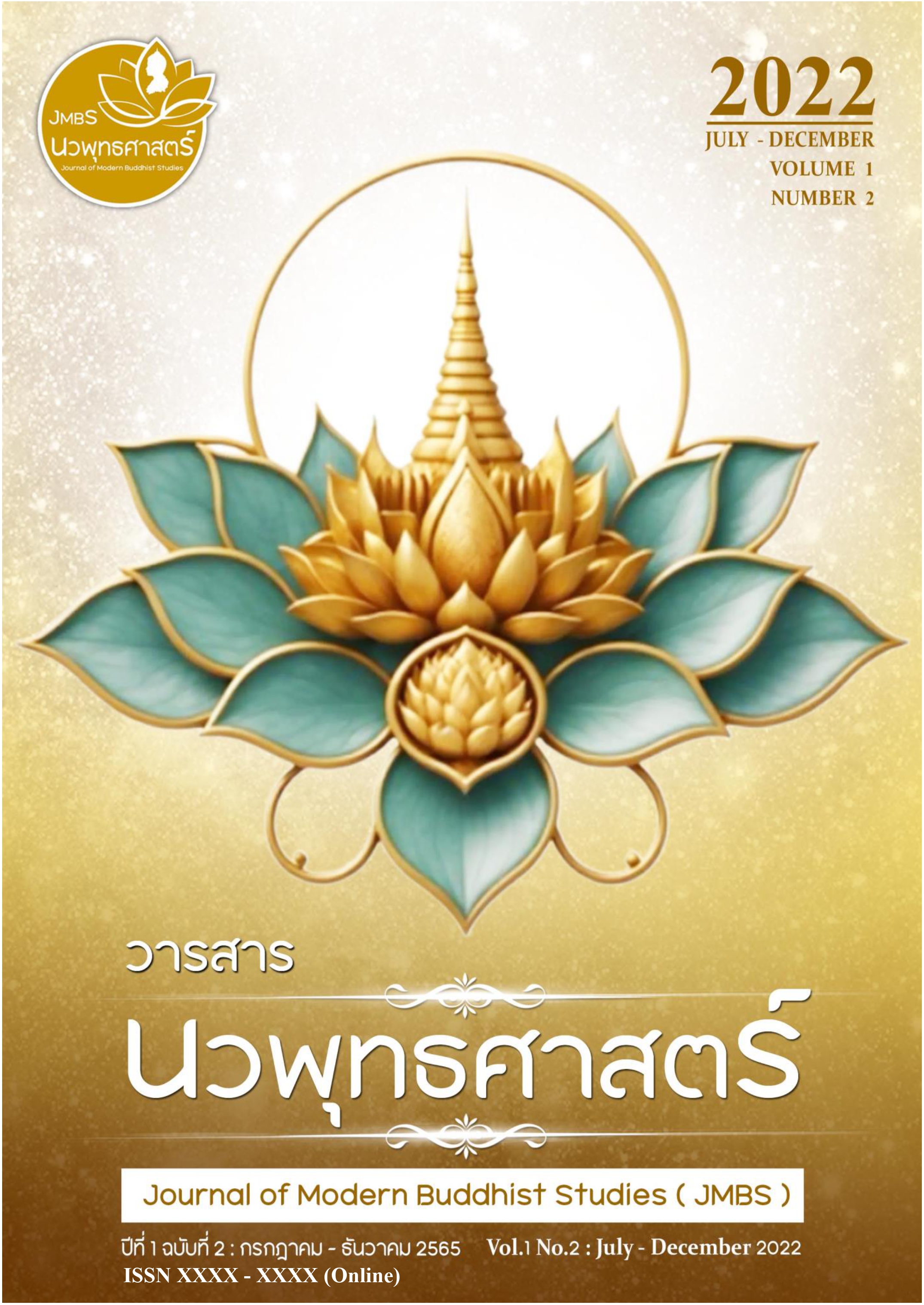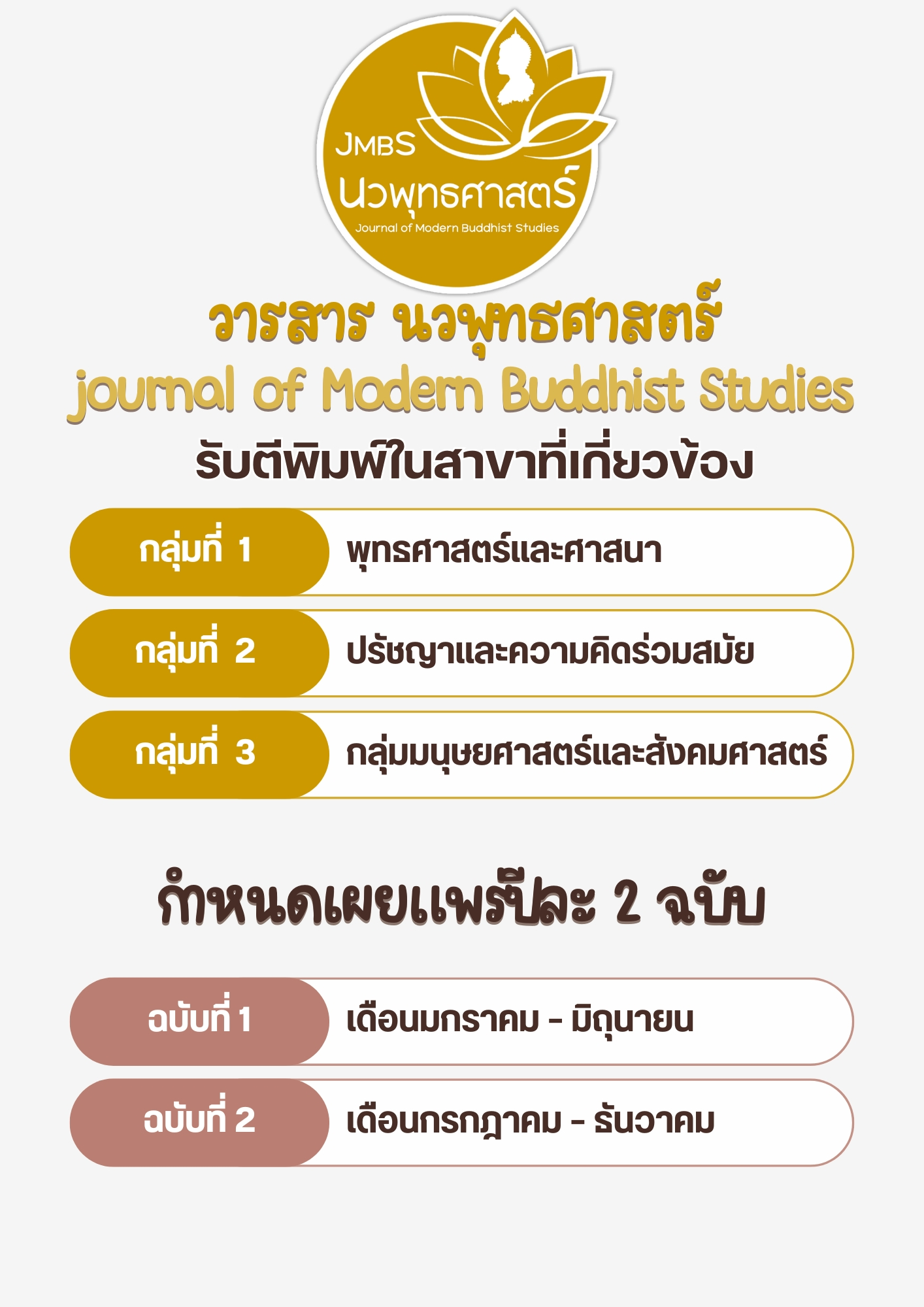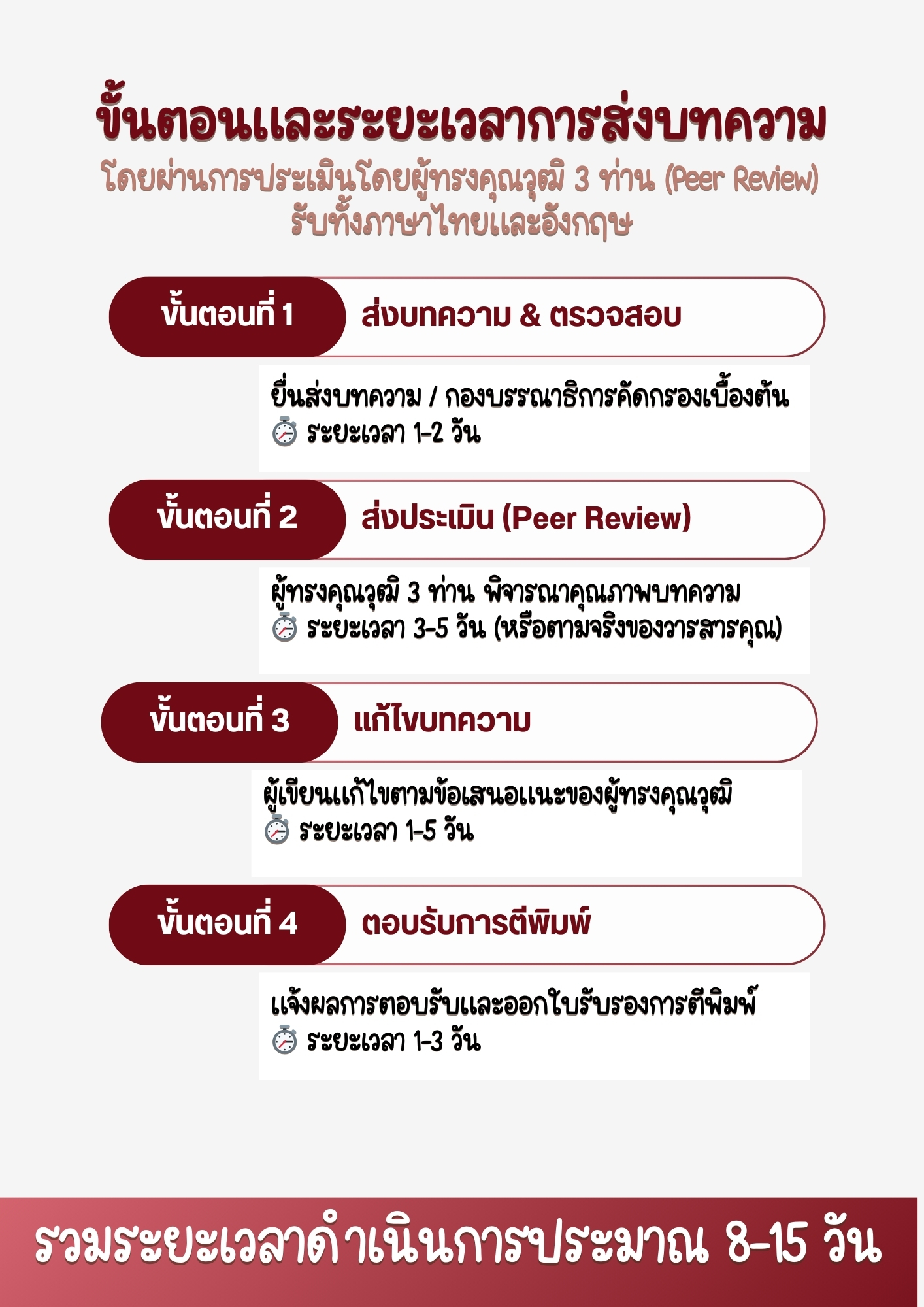ETHICAL DEVELOPMENT IN DIGITAL AGE SCHOOLS WITH THE FIVE PRECEPTS
Keywords:
Development, Ethics, Digital Schools, Five PreceptsAbstract
The academic article “Development of Ethics in Digital Schools with the Five Precepts” aims to study the application of the Five Precepts in Buddhism to the process of developing students’ ethics and morality in the digital age by enhancing the role of technology in creating a valuable learning environment by applying the Five Precepts, namely, abstaining from harming, stealing, sexual misconduct, lying, and drug abuse, as a basic ethical framework that helps instill moral responsibility in students. Integrating the Five Precepts into the curriculum can stimulate learning in morality through creative and modern activities. The use of digital media and online learning platforms, such as interactive media, educational games, and virtual media, can create interest in ethical learning in an interesting way for students. Creating an environment that promotes ethics in schools, having good examples from teachers and administrators, organizing continuous activities to promote morality, and involving students, families, and communities are important parts that help develop students to have a good conscience and be responsible for themselves and society. School management with moral principles will create a responsible and sustainable organizational culture. Policymaking based on ethical principles and transparency will help create fair management. The combination of modern technology and Buddhist moral principles is an appropriate approach to develop students to have stable morality and ethics, which will result in a peaceful society.
References
กระทรวงศึกษาธิการ. (2542). พระราชบัญญัติการศึกษาแห่งชาติ พ.ศ. 2542. กรุงเทพฯ: บริษัทสยามสปอรต์ซินดิเคท จำกัด.
มูลนิธิยุวสถิรคุณ. (2560). รายงานสรุปการจัดประชุมสัมมนานิเทศอาสาของศูนย์โรงเรียนคุณธรรม.เมื่อวันที่ 19-20 มิถุนายน 2560. ณ โรงแรมอมารี ดอนเมือง. กรุงเทพฯ.
ศูนย์โรงเรียนคุณธรรม มูลนิธิยุวสถิรคุณ. (2560). กระบวนการพัฒนาโรงเรียนคุณธรรมทำอย่างไรให้ประสบความสำเร็จ. กรุงเทพฯ : บริษัท สหมิตรพริ้นติ้งแอนด์พับลิสชิ่ง จำกัด.
คสช (2558). คู่มือแนวทางการดำเนินงานตามโครงการสร้างความปรองดองสมานฉันท์ โดยใช้หลักธรรมทางพระพุทธศาสนา “หมู่บ้านรักษาศีล 5” ระยะที่ 3 (ระยะยาว) . กรุงเทพมหานคร : สำนักงานโครงการสร้างความปรองดองสมานฉันท์ โดยใช้หลักธรรมทารงพระพุทธศาสนา “หมู่บ้านรักษาศีล 5”.
นลินี นุตย์จิต (2543). “แนวทางการดำเนินงานกิจการนักเรียนของโรงเรียนสาธิต มหาวิทยาลัยเชียงใหม่”.วิทยานิพนธ์ศึกษาศาสตรมหาบัณฑิต.บัณฑิตวิทยาลัย: มหาวิทยาลัยเชียงใหม่ .
พระมหาสำรวย ญาณสํวโร (2542). “การศึกษาเรื่องผลกระทบจากการล่วงละเมิดศีลข้อที่ 5 ที่มีต่อสังคมไทย”. วิทยานิพนธ์พุทธศาสตรมหาบัณฑิต. บัณฑิตวิทยาลัย : มหาวิทยาลัยมหาจุฬาลงกรณราชวิทยาลัย.
พระครูสิริปริยัตยานุศาสก์ (ดวงจันทร์ คุตฺตสีโล) (2559). คนมีศีล ดินมีปุ๋ย. เชียงใหม่: บริษัท นันทพันธ์
ปริ้นติ้ง จำกัด.
พีระพงษ์ เจริญพันธุวงศ์ (2541). “การจัดกิจกรรมส่งเสริมคุณธรรมจริยธรรมในโรงเรียนมัธยมศึกษา สังกัดกรมสามัญศึกษา: ศึกษาเฉพาะกรณีโรงเรียนกระสังพิทยาคม อำเภอกระสัง จังหวัดบุรีรัมย์”วิทยานิพนธ์ศึกษาศาสตร มหาบัณฑิต. บัณฑิตวิทยาลัย: มหาวิทยาลัยมหาสารคาม.
โครงการโรงเรียนรักษาศีล 5 (2565). [ออนไลน์] แหล่งที่มา : https://www.sila5.com/school/index/detail#detail2.
สุภาพร สุขสวัสดิ์ (2552). “การพัฒนาคุณธรรมจริยธรรมของนักเรียนโรงเรียนสตรีนนทบุรี”.
ปริญญาการศึกษาศาสตรมหาบัณฑิต. (บัณฑิตวิทยาลัย: มหาวิทยาลัยศิลปากร.
อ้อมเดือน สดมณี และคณะ (2548). ประสิทธิผลในการฝึกอบรมทักษะและจิตลักษณะที่มีผลต่อพฤติกรรม ประหยัดน้ำ และไฟฟ้าของนักเรียนระดับประถมศึกษา. รายงานการวิจัย. ฉบับที่ 98. กรุงเทพมหานคร: สถาบันวิจัย พฤติกรรมศาสตร์ มหาวิทยาลัยศรีนครินทรวิโรฒ.

Downloads
Published
How to Cite
Issue
Section
License

This work is licensed under a Creative Commons Attribution-NonCommercial-NoDerivatives 4.0 International License.







